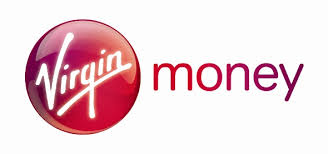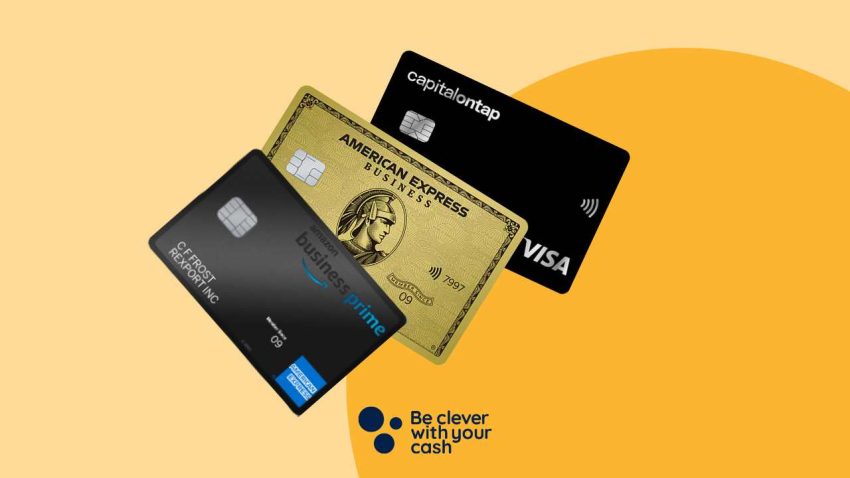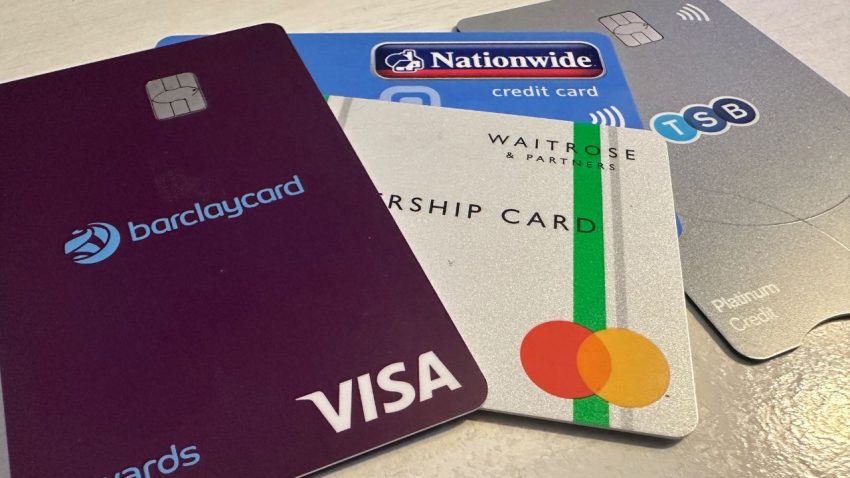You can earn cashback or earn rewards on your business spending
Business credit cards can be used for your business spending to earn you rewards and cashback. They often come with an annual fee; however, a lot of them offer a free first year, so you can switch cards after a year if you don’t want to pay. Here are some of the best business credit cards currently available.
Some articles on the site contain affiliate links, which provide a small commission to help fund our work. However, they won’t affect the price you pay or our editorial independence. Read more here.
Free business credit cards
 Free Business Credit Cards
Free Business Credit Cards

Virgin Money Business Credit Card

 Customer rating
3.6/5
Customer rating
3.6/5
- Annual fee£28 (from year 2)
- Cashback1% cashback on your spending
- Interest free days59
- FSCS Protected? Yes
- Rewards Potential rewards include 25% back on Slack, 20% back on Dropbox, 5% back on Microsoft Advertising and 5% back on Avis car rental in the UK
- Additional cards Split your credit limit between as many cards as you want

American Express Amazon Business Card

 Customer rating
4/5
Customer rating
4/5
- Annual fee1yr free then £50 per year
- Cashback0.5%
- Interest free days56
- FSCS Protected? Yes
- Rewards Earn 1.5% in Amazon reward points or get 60 extra interest-free days on some Amazon purchases
- Additional cards Up to 20 complimentary Supplementary Cards for your employees
- Offer details If you spend £1,000 on your card within the first three months you'll get an additional £75 as statement credit

American Express Amazon Business Prime Card

 Customer rating
4/5
Customer rating
4/5
- Annual fee1yr free then £50 per year
- Cashback0.50%
- Interest free days56
- FSCS Protected? Yes
- Rewards Earn 2% on selected Amazon purchases or get 90 extra interest-free days on some Amazon purchases
- Additional cards Up to 20 complimentary Supplementary Cards for your employees
- Offer details If you spend £1,000 on your card within the first three months you'll get an additional £50 as statement credit
 Customer rating
4.5/5
Customer rating
4.5/5
- Annual fee£0
- Cashback1% earned back in points
- Interest free days42
- FSCS Protected? Yes
- Rewards Exclusive offers at partner brands
- Additional cards Unlimited, free employee cards
 Customer rating
3/5
Customer rating
3/5
- Annual fee£0
- Cashback2% earned for the first 6 months (up to £2,000) and 1% on all business spending after that
- Interest free days42
- FSCS Protected? Yes
- Cashback Get 2% cashback on all card spend for the first 6 months or to a limit of £100,000 spend - that's a total cashback cap of £2,000. After this, you'll earn 1%. T&Cs apply.
- Rewards None
- Additional cards Not available
Business charge cards
 Charge Cards
Charge Cards

American Express Business Platinum

 Customer rating
4/5
Customer rating
4/5
- Annual fee£650
- Cashback1 point per £1 spent. 2 points per £1 spent on Amex Travel.
- Days to pay54
- FSCS Protected? Yes
- Rewards Travel rewards, including airport lounges, £200 credit towards Amex Travel, room upgrades and travel insurance
- Additional cards Up to 19 additional Business Gold cards for employees
- Offer details If you are approved and spend £6,000 on purchases within the first three months then 50,000 bonus Membership Rewards points will be awarded shortly after the end of the three months.

American Express Business Gold

 Customer rating
4/5
Customer rating
4/5
- Annual fee1 year free then £195 per year
- Cashback1 point per £1 spent. 2 points per £1 spent on Amex Travel.
- Days to pay54
- FSCS Protected? Yes
- Rewards Partner discounts and statement credits with purchases at Dell
- Additional cards Up to 19 additional cards for employees
- Offer details If you are approved and spend £3,000 on purchases within the first three months then 20,000 bonus Membership Rewards points will be awarded shortly after the end of the three months.
Business credit cards with an annual fee
 Business Credit Cards With Annual Fee
Business Credit Cards With Annual Fee

Santander Business Cashback Credit Card

 Customer rating
3.8/5
Customer rating
3.8/5
- Annual fee£30
- Cashback1% cashback on all business spend with no cap
- Interest free days56
- FSCS Protected? Yes
- Rewards None
- Additional cards Additional cards are available at no extra cost and control what each cardholder can spend.
 Customer rating
4.5/5
Customer rating
4.5/5
- Annual fee£299
- Cashback1% earned back in points and 1.25% earned back in points for spending on pre-loaded card
- Interest free days42
- FSCS Protected? Yes
- Rewards Airport lounge access for the main card holder and two free guest lounge passes per year, Radisson Rewards VIP status, metal card and 6 months free Xero for first-time subscribers
- Additional cards Unlimited, free employee cards
 Featured switching deal
Featured switching deal
 Customer rating
3.8/5
Customer rating
3.8/5
- Switch bonus£200
- Offer endsUnknown
- FSCS Protected? Yes
- Bonus requirements Switch using the Current Account Switch Service and close your old account within 60 days of starting the switch
- Deposit requirements Deposit £1,500 in the first 60 days from opening the account
- Direct debits transferred over Set up two Direct Debits before or after the switch from a selected list of household bills
- Existing customers? Can't have held any Santander current account on 1 January 2025
- Restrictions Can't have received a switching bonus from Santander already, offer limited to once per person
- Eligible accounts Open a new or hold an existing Everyday, Edge, Edge Up or Edge Explorer current account
Business credit cards explained
Who is a business credit card for?
If you run your own business, then you could benefit from a business credit card.
Anyone, from a self-employed sole trader to a company director, can get a business credit card, but not all sole traders will be eligible for all the cards on offer.
And you should always check if you’re eligible for one before you apply, however, there’s no guarantee you’ll get one if you apply.
Do you need a business credit card?
Credit cards can be expensive if they aren’t cleared each month by paying off the full balance. The interest added on top of anything left over will often cost more than getting a loan, so this isn’t a good idea.
Business credit cards can have benefits like rewards and cashback, which can sometimes be better than what’s on offer for personal accounts, however, these usually come with a cost. In addition, you may get Section 75 protection, however, this depends on whether you’re a sole trader or a ‘corporate business’, such as a limited company or partnership.
Does a sole trader need a business credit card?
If you’re a sole trader, then any credit card for your business is still a personal credit card. Applications will be based on your credit rating, and you’ll be personally liable for any debts you build up.
For this reason, most sole traders will probably be better off with a personal credit card that’s used just for business spending.
You can still take advantage of Section 75 cover, earn cashback with lower annual fees (if any), and even get fee-free spending overseas with some cards.
One of the few areas a business credit card is better for a sole trader than a personal credit card is that you might also get a much higher credit limit. That can help with large purchases. But of course, you need to be able to pay it back!

Section 75 protection for limited companies and partnerships
Section 75 doesn’t apply to these types of businesses. So there’s no added legal benefit to using a credit card in a company. Instead, you’ll need to use a personal credit card and claim the money back if you want to get this protection on purchases over £100.
However, if you run a limited company, it’s much cleaner to have spending made directly via the business rather than claiming it back as an expense. Particularly if you have any employees.
What’s the difference between a charge card and a credit card?
Some of the cards above are charge cards and won’t have an interest rate. These aren’t technically credit cards, as you have to pay the full balance every month. Meanwhile, a credit card lets you roll over a balance and will charge interest after a set period. Be careful which one you choose, as a credit card can make you accumulate debt, however, a charge card may charge you fees if you don’t repay the full balance within the set time provided.
Get the best of our money saving content every week, straight to your inbox
Plus, new Quidco customers get a high paying £18 welcome offer

What you get with a business credit card
Additional cards
Most business credit cards will give you supplementary cards tied to the same account for your employees. This reduces your admin for expenses and helps you track individual spending. With some, you can limit the spending allowed per account.
Cashback and rewards
Another feature of business credit cards is earning rewards in the form of cashback or air miles. There are a handful that offer this on purchases. But these tend to come with a fee, which can wipe out most of the cashback you earn if you’re not a big spender.
You’ll need to calculate just how much you’re likely to earn in cashback after the fee to work out if they’re worthwhile. But say you spend £5,000 a year earning 0.5%, you’ll make £25.
Interest-free days
You’ll get a certain number of interest-free days with your business credit card or charge card, ranging from 42 to 59 days. This is how long you’ve got until a purchase will start to accumulate interest at the variable rate you’ve got with the card. Be sure to clear the balance within this timeframe to pay no interest on your purchases.






